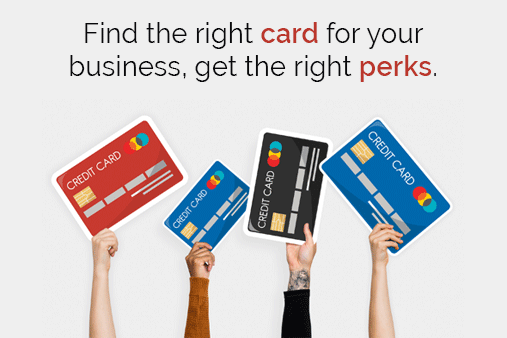How to Maintain Business Credit
Maintaining business credit lets businesses leverage debt to free up cash flow. Cash flow allows businesses to pay their short-term debts and grow profit margins. Learn how to maintain business credit in this free report.
Recommended: Apply for an easy approval business credit card from BILL and build business credit quickly.

The Benefits of Maintaining Business Credit
There are many benefits to having and maintaining established lines of business credit. We will outline some important reasons to acquire and maintain business credit lines.
- Qualify for loans – the higher your business credit score, the easier it will be to qualify for a loan.
- Receive better loan rates – the higher your business credit score, the better your loan rates.
- Protect personal credit – having established lines of business credit means you don’t have to risk using your personal credit.
- Negotiate more favorable terms with suppliers – the higher your business credit score, the better position you’ll be in to negotiate terms with new and existing vendors, lenders, and creditors.
- Build cash flow for growth and expansion opportunities – the more cash you have in your business checking account, the more leverage you have for growing and expanding your business.
Important: Privacy laws protect personal credit; however, business credit is not protected, and anyone can gain access to your business information.
Recommended: Learn more about how to build business credit.
Who Are the Three Main Business Credit Bureaus?
Somewhat like a personal credit report, businesses have their own credit reports. These reports are produced by business credit reporting agencies (business credit bureaus) and accessed by lenders to determine a business’s creditworthiness. There are three main business credit bureaus:
- Dun & Bradstreet
- Experian Business
- Equifax Small Business
Dun & Bradstreet
The main business credit bureau is Dun & Bradstreet, which has been around since the 1960s. Dun & Bradstreet creates a DUNS number (unique nine-digit identifier) to every business in their system. When a vendor or lender decides whether or not to extend credit to a business, they will use this number to pull a credit report to evaluate a business’s credit rating.
Set up a Dun & Bradstreet credit profile by following these easy guidelines:
- Ensure your business is a separate legal entity. We recommend forming a limited liability company (LLC).
- Get an Employer Identification Number (EIN) from the Internal Revenue Service (IRS). You need this to open a business bank account.
- Open a business bank account in the exact legal name of your business. Make sure it matches the name on your LLC filing.
- Make sure you have a business phone number with a 411 directory listing. This shows would-be creditors that you are a legitimate business.
- Find and apply for credit with vendors that report to Dun & Bradstreet.
- Check your business credit profile regularly to ensure you have established trade lines with these vendors and that they are reporting all your business information correctly.
Recommended: Learn more about Dun & Bradstreet and how to get a DUNS number free by checking out our free Dun & Bradstreet Business Guide.
Experian Business
Experian Business is another important business credit bureau. To set up a business profile with Experian Business, follow these steps:
- Ensure your business is a separate legal entity. We recommend forming an LLC.
- Get an EIN from the IRS. You need this to open a business bank account.
- Open a business bank account in the exact legal name of your business. Make sure it matches the name on your LLC filing.
- Make sure you have a business phone number with a 411 directory listing. This shows would-be creditors that you are a legitimate business.
- Find and apply for credit with vendors that report to Experian Business.
- Check your business credit profile regularly to ensure you have established trade lines with these vendors and that they are reporting all your business information correctly.
Recommended: Learn more about Experian Business by checking out our free Experian Business Guide.
Equifax Small Business
While Equifax is not used as much as Dun & Bradstreet and Experian Business for reporting, Equifax Small Business is still a credit bureau you don’t want to dismiss. Often vendors, lenders, and creditors will report to multiple business credit bureaus.
The good news is that setting up a business credit profile with Equifax Small Business is relatively the same process as with Experian Business.
Make sure and follow these steps to get listed so vendors will report your timely payments to Equifax Small Business:
- Ensure your business is a separate legal entity. We recommend forming an LLC.
- Get an EIN from the IRS. You need this to open a business bank account.
- Open a business bank account in the exact legal name of your business. Make sure it matches the name on your LLC filing.
- Make sure you have a business phone number with a 411 directory listing. This shows would-be creditors that you are a legitimate business.
- Find and apply for credit with vendors that report to Equifax Small Business.
- Check your business credit profile regularly to ensure you have established trade lines with these vendors and that they are reporting all your business information correctly.
Recommended: Learn more about Equifax Small Business by checking out our free Equifax Small Business Guide.
Manage Your Accounts and Business Credit Profiles
It is not enough for you to simply manage your vendors, lenders, other business creditors, and business credit card accounts—you must also manage your business credit reports. Here’s why:
- Accounts don’t always report correctly (e.g., your business address could be incorrectly stated, affecting your business credit score).
- Delinquent business debts might not be updated after being paid off. Sometimes you have to contact the vendor and the business credit bureau agency to get the delinquency removed.
- Not every bill you pay will show up on your credit report. You might have to ask a vendor to report a payment.
- Fraud can occur. Fraudsters can open up lines of business credit without your awareness, destroying your business credit score, as business accounts aren’t private, like personal credit accounts.
- Business credit reporting agencies have been known to make mistakes and confuse one business for another business. In these situations, misreported information may affect your business credit score.
- Other variables affect your business credit score (e.g., number of employees, how long the business has been around, business registration details, operational data that gets reported by the bureaus, liens, judgments, and UCC filings, etc.).
Recommended: To manage your business credit you’ll need to pull your business credit reports from the business credit bureaus. There are three main bureaus and we’ve put together guides for each to help you build your business credit.
Follow These Best Practices for Maintaining Business Credit
After learning the importance of building business credit, the top three business credit reporting bureaus, how they operate, the significance of monitoring your vendor, lender, and credit accounts as well as your business credit reports, it’s time to learn the best practices for maintaining business credit.
Here are some tips to help you maintain business credit:
- Partner with companies that help build business credit – Not all companies help you establish and build business credit. It’s important to partner with companies that report to the business credit bureaus regularly and which are willing to help you build your business credit.
- Pay bills on time – as the saying goes: It’s better to be early than late. The same goes for paying business bills; it’s better to pay them off early.
- Pay down debts – a good practice is never to spend more than 30% of your business credit lines.
- Keep your spending under control – just because you have established business credit doesn’t mean you should spend money needlessly.
- Know your credit scores – your credit score is a snapshot of your business’s creditworthiness.
- Take care of tax liens – paying tax liens should be a top priority as they can ruin your credit rating fast, destroying the business credit rating you’ve worked so hard to build.
- Set monthly reminders – we advise you to check your credit reports and check in with vendors, lenders, and creditors monthly.
Tip: Write a note to yourself in a day planner or set a calendar app notification to remind yourself to pull your credit reports and check-in with your lenders each month.


